If it's on TV, it's a TV show
and if it's on your phone, it's a Tiktok
I.
I watched a Gary’s Economics video yesterday, called “Refugee Riots – Salience and Storytelling”.
In it, he muses on the effects of the media in the UK, how it’s causing what’s happening in the streets, and how we need a new story to counteract it from a left-wing perspective. He says that by the end, we are going to understand how the media works.
To those unaware, Gary Stevenson is a city trader turned public persona/activist/economist. He puts out videos on inequality, taxes, and the economy for a general audience, and is trying to build a movement towards heavier wealth tax in the UK.
In terms of his story, he is very keen on letting you know he’s from a working class background, got high grades at the London School of Economics, and was a multi-millionaire at 25. This background has given him his lens into how the system is unfair on poor people. Despite his wealth he sticks to everyday aesthetics, recording in his kitchen, wearing hoodies, and using curse words.
Some housekeeping before we get into it: I think Gary is basically right a lot of the time and is worried about the right things. Even the most capitalistic amongst us must admit that the one big catch of the current economic system is that it can, if left unchecked, create huge inequality. Turns out, it has been left unchecked and that has happened. You should care about this even if you openly don’t care about poor people’s welfare, because at some point the system will not hold and the whole thing gets torn down. Also Reform are very likely going to win the next election if nothing changes.
He’s also right about storytelling, sort of. In this video he mentions that narrative decides what the public thinks, and politicians will follow along with that for approval. This is true and possibly underrated. If you want to see a change in your country, chances are getting people elected is an inefficient way to go about it. It’s easier to change what people want.
What Gary is dangerously wrong about is how media works.
And this is because he doesn’t seem to understand how power works, either.
Even when it’s staring straight at him.
II.
Gary starts his video by saying he is going to talk about the refugee protests, salience and storytelling. He doesn’t really talk about the refugee part at all, but he does talk about salience and storytelling.
He sees the immigration issue as opposition to his wealth issue. Each side looks at bad things happening in society, and blames them on their version of the big problem.
He notices that his cause’s place in the media has begun to slip away recently, and they’re starting to lose the game, which has made him think about salience:
Two and a half months ago and at the time it really felt like we kind of had our foot on the neck of the media basically. Everybody was talking about wealth taxes. Everybody was constantly asking politicians, why don't you do something about wealth taxes? Why don't you do something about inequality?
And there was kind of an effort made by the media, especially by the right-wing media, to kind of discredit the ideas on wealth taxes. And really, to be honest, it kind of failed. I think they didn't really successfully poke many holes in the idea of taxing the rich more, in the idea of doing something about inequality, and it felt like we had won the argument.
But then what basically happened was the media pretty much stopped talking about inequality and started to talk more and more and more and more about refugees and asylum seekers and these protests at these hotels. And what this teaches us is the importance of the first media idea we're going to explain today which is salience.
So they’re losing the battle for salience to the right-wing, hence protests at migrant hotels rather than at parliament.
In the next part of the video, Gary lays out what the important question to be asking is in order to regain the lead:
Salience is basically how visible a particular topic is. So rather than try to win the debate, you try to make sure only one side of the debate is visible.
The media decides what is or isn't discussed an eye out for it you will see all over the media. You will see everybody doing it in every political conversation.
It doesn't just apply to an individual conversation or an individual debate. We can apply it to the media as a whole,one media show or basically like the whole media like all of the TV, all of the newspapers, all of the online social media. What topics are getting discussed and what topics are not getting discussed?
And back in late June, early July, the economy and inequality and taxation of the rich were being discussed every single day on every single news show. We had massive salience. We we were the issue that was being spoken about. We were the issue that was dominating media time.
And now if you look at the TV, what you see is immigration and asylum seekers and refugee rights, refugee protests outside hotels are being spoken about much much much more. And issues of inequality, taxation, distribution have kind of been put on the shelf which basically means we as much as we maybe won the argument on the economy, we are now losing the battle for salience.
So how do you win the battle for salience?
First, consider how the battle has gotten formed, i.e. the nature of the tools you consume the world through. Including the one you’d be using to watch this Gary’s Economics video.
Our current technological set-up is an ecosystem of micro-messages, accompanied by like or upvote buttons, that inevitably strips everything to pure psycho-memetics. This process applies to aesthetics, music, food, people, whatever else. It applies to politics on steroids. Hence, social media dominated by very simple worldviews and the amount of causes for the bad things being narrowed down to approximately one. Gary implicitly agrees with this, so he sets his anti-billionaire cause up against the anti-immigration cause.
The issue with this is that we live in a multivariate world, where everything is connected. Therefore everything does cause everything in some way. So the key thing here is that when a big bad thing happens, and you go search for your number one issue in the cause column, you will find it. Every time. And you technically won’t be wrong. So the gas that fuels the echo chamber gets lit again.
Think about who benefits from this process and you are halfway towards the answer. And this is where Gary is so close to getting it.
He says this:
The media decides what is or isn't discussed, keep an eye out for it and you will see all over the media. You will see everybody doing in every political conversation.
Which means he thinks the power the media has is deciding what answers get discussed. He needs to step one step back, and realise it’s not where the money is at.
Consider that he takes ‘which side is right, immigration or inequality?’ as the given question that he is tasked with answering, and fighting for.
Think about this as the question he never thinks to ask: is it possible that both inequality and immigration contribute to some of the things people have issues with in the UK?
I say he never thinks to ask that, rather than having a formed opinion on it, because he manages to not find it strange at all that he could make a 30 minute video on the refugee riots, talk about wealth inequality the entire time, and not talk about the refugee issue once.
Gary is focused on winning the ‘Battle for Salience’ because he’s locked in the simulacrum. What he doesn’t get is that when he’s invited to Newsnight or whatever, and is sat opposite the Reform-er who wants everyone deported, the battle that matters has already been lost.
Here’s a hint: if you’re sitting on BBC primetime TV, you need to wonder why you’re sitting there. You claim the media is powerful, and in this case it’s picked you. You might wonder what makes you so special.
Hey, this might not be on Gary’s curriculum, but the bible of how to think about this has been available since 1964, and this billionaire is happy to give it to you for just £15.99.
McLuhan explained that form trumps content every time. So if you’re on TV, you’re a character on a TV show. You are entertainment. If you’re making short form internet content, you’re a TikToker. You sell dopamine for a living.
And this is where you see the genius into converting all societal problems into Cause A vs Cause B. It guarantees people fighting over their place in the media forever, which permanently entrenches its power, as well as the ad revenue.
Gary thinks storytelling is the most important issue of the political landscape, and he’s kind of right. But again his focus on content of the stories blinds him from focusing on the far more important form. If you are offering a story that blames every bad outcome on one thing, you are forcing your audience to live in your simulated reality, and taking all their power away.
Yes, stories get the people going, but give them two competing stories, which they’ll accurately be able to partially blame every issue that comes up on, and you guarantee that the cycle goes on forever.
Gary demands change, but this is the last thing the media wants.
And when he sits down on YouTube to strategise his place in the media landscape, the real battle is already over.
So our question has to become: why does the media pick him specifically to enter the arena? What is it about the way he interprets the world?
III.
The key to the classic tale of misunderstanding of media we are describing, is a conflation between the symbols of power and power itself. Between map and territory. And this view of collective psychology feeds down into a limited view of individual psychology too.
I find it alarming how he speaks about humans as capable only of reacting to external incentives. In this video about salience, he offers his ‘favourite’ Milton Friedmann quote: “At the time of crisis, the solution will be chosen from the ideas lying around at the time”. Awesome. That would probably sell as a t-shirt. But it strips people of any kind of agency.
Gary uses this to explain that if you have a collapsing economy, stories start to boom, and people will buy into any way out of the status quo. And look, it is fair to say there’s something to that, but you must accept it’s a shallow way to view the world.
Why is the crisis actually happening? Why do particular stories win? What happens after they win? What do individual people want?
If Gary’s suggesting they care about their own economic success alone, I just don’t know if he’s ever met a real person. Living for one day is enough to know that motivation is a complicated thing with its own world of internal battles before you even check out what external incentives are on offer.
But this is where you realise that maybe Gary doesn’t get this, because he somehow manages to see himself in 2D too.
Here’s a quote from his book, talking about the difference between the friends on his estate that dealt drugs and his competition on the trading floor:
What I realise now is that we’re all the same. The drug dealers, the bankers, the traders, me now, me then, and [names of the people]. We’re all the same. The only difference is how rich our dads were. If those drug dealers went to East North St Paul’s or whatever the fuck boarding school Rupert had gone to, they would be there with me on the trading floor. Sitting next to Arthur, sitting next to JB, buying green euro dollars.
Sorry, what?
Poor kids end up dealers, rich kids end up traders. The only important variable is wealth of dad. And yet, do you not think it’s relevant to mention … that you had a poor dad … and you’re on the trading floor? You mention it all the time in other contexts, yet it suddenly becomes irrelevant.
(and in fact, by the empirical research, you’re better off being born poor and smart than dumb and rich)
More on that later, but to double down on why Gary’s self-psychology is questionable, I present to you…
In his Guardian (relevant) profile, he says this about being depressed as a trader:
“It’s about a total numbness, feeling nothing. You don’t care if you haven’t eaten for five days, you don’t care if you haven’t brushed your teeth – it’s a total separation from the world. If you can enable people who’ve never experienced depression to in some way feel it, that would be a service. I don’t want people to sit listening to Prince William on a podcast – I want you to be there. I want you to be a little bit confused, because I was confused. I was a multimillionaire in my mid-20s, I had a beautiful girlfriend, and I was unhappy.”
This is not to invalidate his suffering, but to show that his interpretation of his suffering is part of the reason it came into being in the first place.
Because only an economist or someone with a weak sense of self could come out with that last sentence. I’ll give Gary the economist pass, but if you thought it made sense, and you don’t know how to calculate a Gini coefficient, then you might have an issue.
By which I mean that him thinking it’s newsworthy that one could be rich with a hot girlfriend and still depressed, and that other people would be shocked to hear that, is frankly the psychological model of an adolescent. Or a person who thinks that the only things that matter in the world are symbols.
Think about this, and if you don’t have the answer, you should stop reading this entirely and think some more: why didn’t he say “I had a loving girlfriend”?
Back to the drug dealers and the traders.
I watched him talk about this on The Rest is Politics podcast (never say I don’t sacrifice anything for you), where he says this:
Honestly, the personality type of the person who becomes a drug dealer from a poor background and the person who becomes a trader from a rich background is the exact same.
…
It's a status game, you know. It’s like Macbeth, right? It’s the power game. You want to be the top dog. You want to be above those guys. Like, it would be meaningless without the money. The money is about being the best.
Both poor kid who becomes dealer and rich kid who goes into finance have something in common. He calls it a status game, but let’s unpack it.
In both scenarios, one looks at the symbols of respect and status in their immediate environment, and decides to chase those alone. Maybe because they don’t know what else they’re supposed to be doing. And they both get to the end point, and make a lot of money, and don’t really know what to do with it beyond the stereotypes: cars, watches, etc.
This is the key point, by playing any status game, you are valuing the things that the system has told you to value above all else. You are obeying authority in its purest form.
And given that your career choice has been guided by symbols, you can only express yourself through symbols too. Hence the brand names, hence the loud cars, hence the ‘hot girlfriend’ treated as an accessory, hence the obsession with going to Dubai for both the dealer and the trader.
Both of them became exactly what the system incentivised them into becoming.
The issue Gary has, and the reason I needed to veer a little personal there, is that he thinks this only applies to his past.
But consume 30 minutes of the guy’s content and you realise this is a man still utterly obsessed with symbols. And the media loves people with that trait.
Consider why he relentlessly brings up going to the London School of Economics at every opportunity, even though (1) that was decades ago (2) no one’s placed any value on college degrees for at least ten years and (3) a reasonable percentage of the people he claims to be speaking for wouldn’t even know that that’s meant to be a big status symbol. He repeatedly attacks academic economists for being immoral and ignorant, yet at the same time tries to command respect for being their star pupil.
Consider the fact he carefully designs his YouTube background to look like it’s a middle class one-bed flat, and dresses in hoodies and beanies, and tries to squeeze a swear word into every second sentence.
And the most important one to understand: consider why it is that he designs this narrative about how poor a background he has, and why posh politicians don’t want to respect him and his London accent, and how the mainstream media are scared of him, even though he is in the mainstream media all the time, and half of the current Labour cabinet grew up poorer than he did.
So, to overstate and overstate the whole point again: the reason he doesn’t treat that as important information is because the media taught him not to. It taught him to fight for Side A. And his glee at doing so is what makes him the perfect defence against change for a system that would rather maintain all the power.
So, now it’s time to talk about power.
IV.
I’ve been watching the Irish version of The Traitors recently. This is the show where they put 20 people in a castle and make 3 of them Traitors, who then ‘kill’ the Faithful non-traitors each night. The Faithful need to work out who the Traitors are via social deduction and vote them out.
This show is posited as a team game when functionally it operates as an individual one. Traitors are incentivised to betray each other and as a faithful you only care about your own survival.
There was a really interesting moment in Episode 4. Nick, a faithful, is pretty sure Paudie is a traitor (which is correct). He says rather than vote him out, he’s going to stay close to him, hope Paudie keeps him in the game, and then reveal it in the endgame. This is good faithful strategy in an otherwise very difficult game.
But the actual genius of what Nick does, which the edit makes it unclear over whether he realises it, is that the person he decides to say this to is Eamon, a second traitor that Nick has his suspicions on, who is trying to get Paudie out himself.
So the exact trick Nick is explaining he’s pulling on Paudie, is actually what he’s pulling on Eamon in front of his very eyes. And he’s allowing Eamon to feel thrilled to think that he’s getting his way over the other traitors, and doubly ensuring Eamon will never kill Nick.
This is the part to understand: by allowing Eamon to feel like Paudie is the mark, Nick stops him from ever wondering if the joke is actually on him.
But it’s Paudie that makes the whole play possible.
Everything that Gary misunderstands about power can be summarised by himself in this short video he uploaded last month, titled ‘What if I get shut down?’ Here’s the intro:
Ok we’re going to do a special short about protecting the future of Gary’s Economics. As we go and get more politically powerful, we become aware that our increasingly quite large political power is at risk of things happening, like getting chucked off of YouTube, chucked off of Instagram, and it’s best we create a mailing list just incase that ever happens.
We can stay in touch with you if we ever get deplatformed, which something in the long-term could definitely happen. It’s really just to protect our political robustness, in case the tech billionaires ever decide to come for us.
I’m not trying to be too harsh, but how can it be that if I go to Heathrow tomorrow, and stop at WHSmith, your book is going to be front and centre of that weird Steven Bartlett section, and yet you still don’t wonder if you perhaps might be operating from within the system? You are the thing the media wants people to consume.
And now he’s so deep into media that he genuinely thinks he’s the main character of a TV show. Or some reboot of V for Vendetta where he’s V and we are collectively Natalie Portman.
But this is a guy operating only within the confines of the system he’s been taught to obey, while being utterly convinced he is the ultimate rebel, and that right there is the cleanest example of how modern power works that I could ever hope to offer you.
Last year I wrote about this Kafka micro-story, ‘Leopards In The Temple’:
Leopards break into the temple and guzzle the chalices empty; this happens repeatedly; eventually one can predict that it will happen again, and it becomes part of the ceremony.
The typical analysis of this story is that it symbolises change as the Leopards are integrated and a new world forms. Except it hasn’t. Kafka wasn’t prescribing a method for incremental progress.
The leopards in the temple are not a symbol of ‘How Change Happens’, but of how change is prevented.
But you can see what’s so effective about that move on behalf of the person in power. It’s that the only characters in that ceremony who don’t understand what’s just happened … are the leopards. They’re too neck deep in chalice to even think about it.
They still don’t know who the joke is on. They think they caused a rebellion.
(This is analogous to the positive power Byung Chul-Han writes about, enforced with a ‘well done kid’ rather than a whip.)
So back to our story, where we see that everything’s getting much worse than originally thought.
Because Gary’s message isn’t broadcast in The Sun, it’s in The Guardian. Check out what podcasts he goes on. This is a guy playing to the educated class, and that’s where things get dangerous. He’s letting us think we’re in on the rebellion by watching his videos.
One of the best to ever do it once said this:
The problem with elites is that they’re smarter than the average rube, and they know it, which is why they’ll never get the point. They’re smarter because they do read the journals the periodicals and the magazines. They’re “informed”. But being informed means no filter, i.e. direct from the prop machine. Which means that they are prime propaganda territory, not Joe the Plumber.
If you are an elite (you are) I want you to sit and think about that last line very hard, possibly for forever, and if you don’t understand it then never ever try and have any more power than you already do, you will fuck this world up otherwise.
And this is the true nature of the power dynamic. Gary might be getting played into a simulacrum of symbols, but it’s not his consequence to deal with. He’s still wealthy as hell. The issue is that Gary is getting played into playing you.
Nick tells Eamon he’s playing Paudie. Eamon thinks he’s the one with the most information.
But here’s the thing:
True power is with Nick. Gary is Eamon. But you’re Paudie.
So, your job is to not be Paudie. To not fall for it.
When Gary tries to explain how the media and salience works, and that you’re being duped, you have to realise the exact same trick is being played on him. Only he’s a layer deeper, and will never realise because he keeps getting told he’s the genius that’s worked it all out.
So when he comes up on your feed next, listen to his points, most of them are correct, but also listen to the medium. You are watching a TikTok. And when he gets invited onto the BBC, you are watching an episode of a TV show.
Because it’s you thinking you’re winning by learning about salience and storytelling from Gary’s Economics, that allows Gary’s Economics to think he’s rebelling against the system, which allows the system to never actually have to change.
Which means that while Gary’s worried that the tech billionaires might come for him, the truth is that the tech billionaires could not be more happy that he exists.
And there is the grand reveal of the whole joke. Gary is controlled by the only thing he cares about in this world. Authority figures. Ba-dum tsh.
Look, you can be very smart in this world, but power is almost always smarter.
So I offer this advice: when things are going wrong in the world, and everyone’s angry at each other, and the media seems to be in control of it all, don’t ask what is being made most salient.
Ask what is being made the exact opposite. It is only then the walls of the temple come into view.
I look forward to the 20 minute explainer video on that one.
If you enjoyed this, you may enjoy:
What is The White Lotus for?
Back to the long posts after this one. Going to be fun. Sorry for the wait.


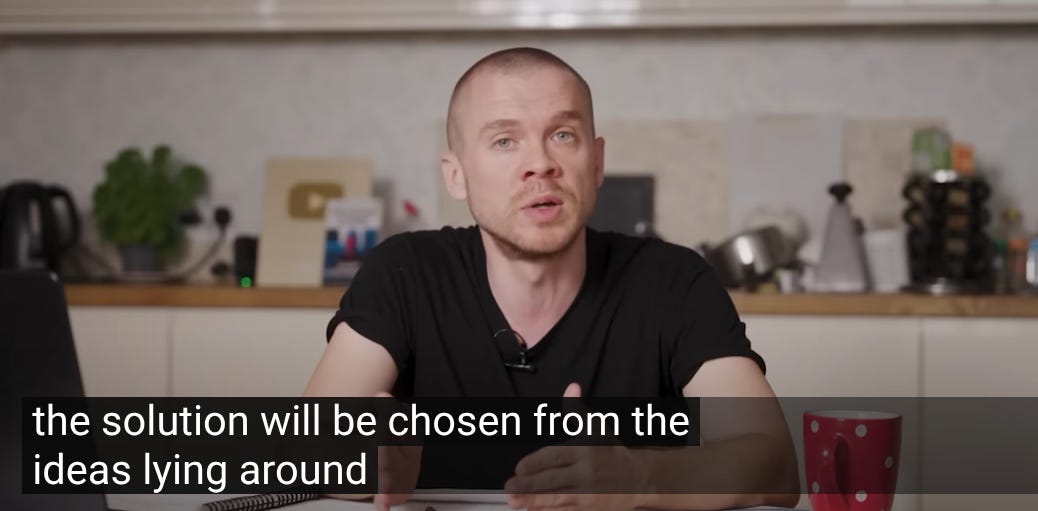
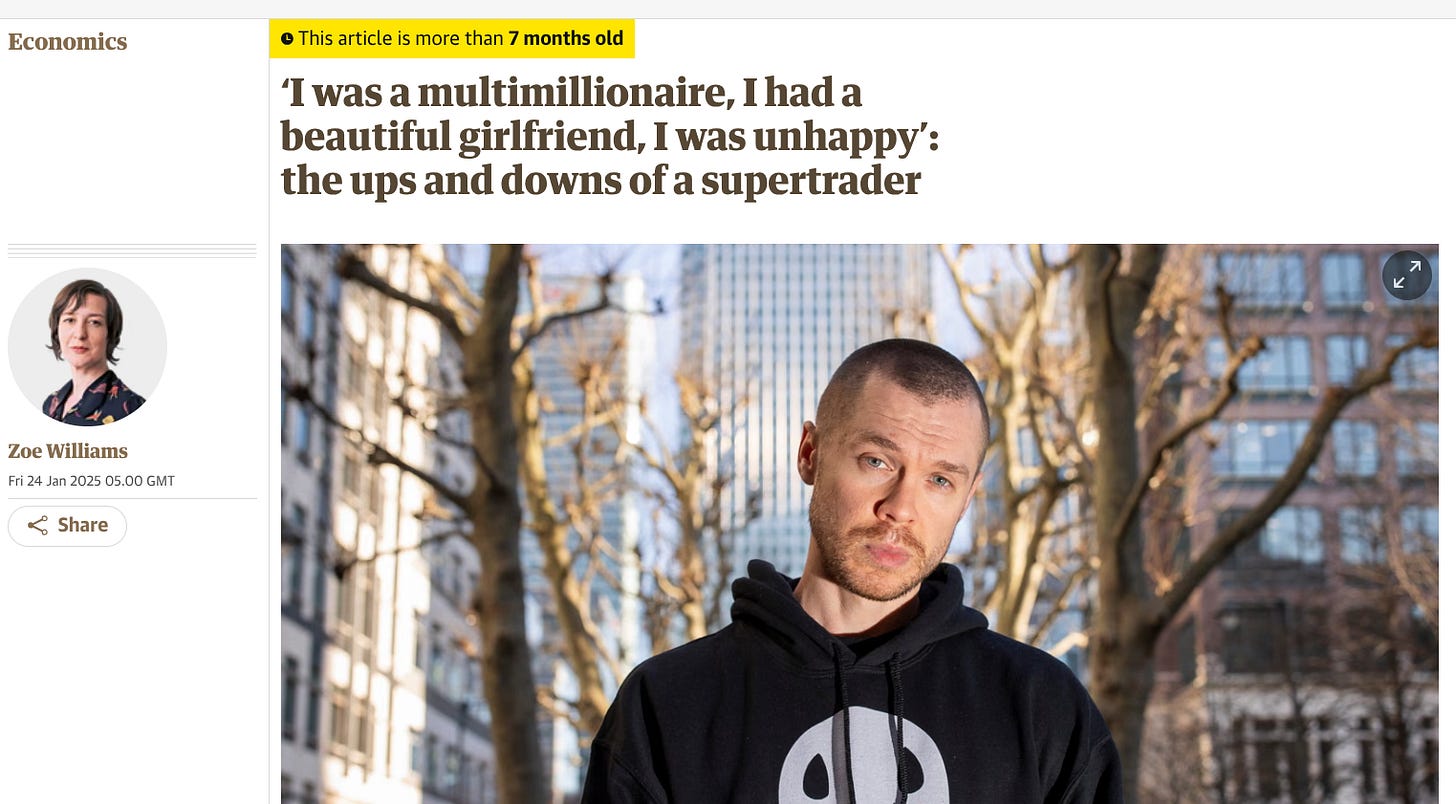
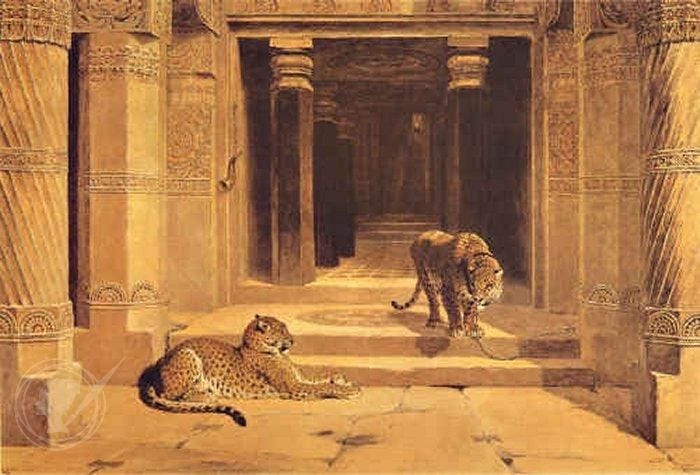
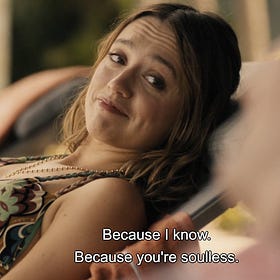
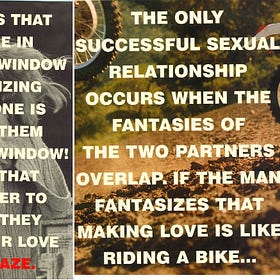
Reminds me of that Black Mirror episode where the guy threatens to kill himself to enact change, and the elites give him a primetime tv show where he does that for a living.
I'm in an odd position because my view of this article mirrors your view of Gary's video(s) - I agree with most points but my disagreements are profound enough to render a strong response necessary.
Even if I accept everything you say about the guy as true (I do), his central thesis and modus operandi for his channel/book/TV persona is a trifecta of: wealth inequality is rapidly increasing, it can be mitigated via some form of wealth tax and the labour party has been co-opted by the interests of capital so they won't impose wealth taxes unless politically pressured to. The channel/book/tv persona exists in order to garner sufficient support for this singular goal and I treat everything the man's doing as a realpolitik way of bringing him closer to achieving it. So unless the goal of your article is just to tell us not to buy into his persona in the way that he appears to have done at times, where exactly is the insight here?
Gary is an interesting figure for me because he's an example of the status quo being made self aware, to an extent - the people already made wealthy by the existing system probably ought to just stop jostling for more money and influence and help the current system not fall apart completely; he is more or less explicit about this (albeit in a fairly inarcticulate way) when talking to and trying to convince fellow wealthy people of why this issue should matter to them. I suspect he can't be fully articulate about this because it would damage his 'working class hero' appeal he is cultivating to garner support from his cause by exposing his motivation as being essentially self-serving. But that's fine, unless you're an accelerationist who wants the system to fall apart completely and to replace it with something else entirely. That's a valid viewpoint too, so long as you have sufficient sway over the people with guns to build the system you want in the ruins of the old one.
To summarize my point, if the man can use these Machiavellian methods to achieve some form of wealth tax while Labour is still in power, does it really matter how he does it?